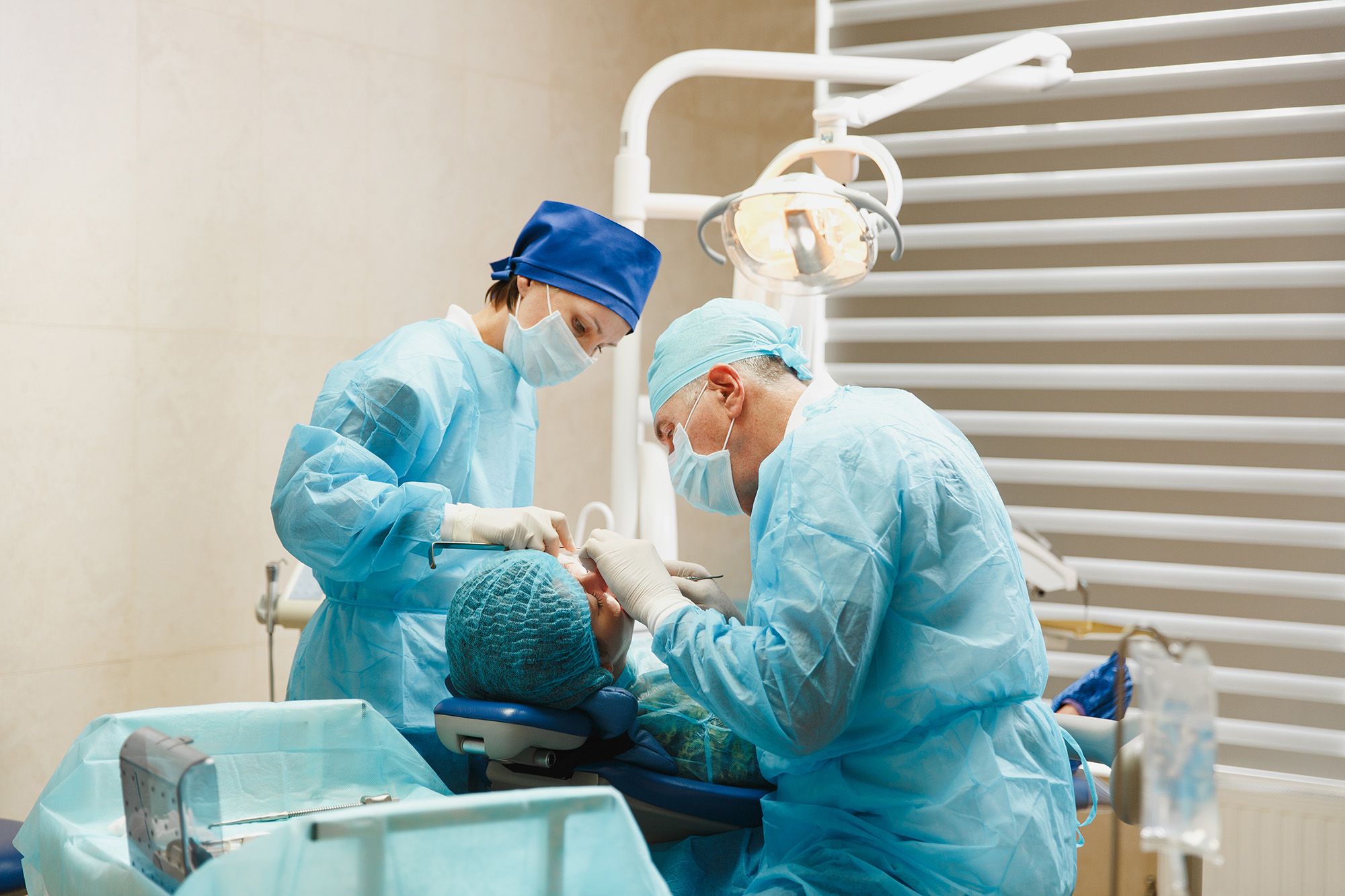
Oral Surgery
There are a number of situations in which oral surgery may be necessary. While the prospect of oral surgery may seem daunting, be assured that the dentists at Smile Solutions Dental Centre in White Rock will adequately prepare you for the procedure and ensure your utmost comfort during each step of the process.
Wisdom Teeth Extraction
There are usually three sets of permanent molars that develop in a person’s upper and lower jaw. The first molars usually grow into the mouth at around the age of 6. The second molars usually grow around the age of 12. Third molars, also called wisdom teeth, are the last of a person’s teeth to surface, usually between ages 17-25. Most people get four wisdom teeth, but some don’t have any, and in some rare cases, people end up with more than four. Your dentist will observe your wisdom teeth through x-rays as part of regular examinations.
In many cases, wisdom teeth do not grow in properly. There is also the potential of having unhealthy gum tissue around them. Often, wisdom teeth do not erupt properly or become impacted, requiring them to be extracted. The Canadian Association of Oral & Maxillofacial Surgeons (CAOMS) states that 85% of people with wisdom teeth will eventually have to have them removed. If left untreated, impacted teeth can cause a host of problems, including misalignment of the jaw.
Even if not impacted, wisdom teeth can be difficult to clean and often require removal to reduce the risk of decay and infection. To avoid potential problems later in life, most dentists remove impacted wisdom teeth.
Your dentist will examine your mouth and x-rays to determine if your wisdom teeth are impacted or will not grow properly. Impacted teeth may cause problems that can lead to infection, adjacent tooth resorption, gum disease, cysts, or tumours.


Symptoms of impacted teeth:
Pain and stiffness of the jaw
Headaches
Infection in the mouth
Facial swelling
Swelling of the gum line in the back of the mouth
Wisdom teeth are typically removed after the roots are formed, or at least three-fourths developed. This is usually in the late adolescent years. Surgeries performed later in life are still effective, but healing may be slower, and the risk of complications may be slightly higher.
Wisdom teeth extraction is performed under local or general anesthetic and does not require an overnight stay. The surgery is performed in an environment of optimum safety, with modern monitoring equipment and staff who are experienced in anesthesia techniques.
Bone Grafting
Dental bone grafting is performed to build up the jawbone. In cases where the jaw bone is damaged or receded, bone grafting is performed as a preparation step prior to a dental implant or restoration. These restorations require sufficient jaw bone volume for optimal chances of success.


Jaw bone volume can be insufficient for a number of reasons:
Periodontal (gum) disease and infections – progressively attacks gum tissue and will eventually damage the jaw bone if left untreated. Other infections can also diminish bone.
Tooth extraction – it is estimated that following a tooth extraction, the patient loses 40-60% of the bone surrounding the tooth site within three years.
Injury – blows to the jaw or other dental injuries can cause the jaw to recede. Bone grafting treatment can take several months to complete. It is performed as an outpatient surgery (no overnight stay.) Typically, bone is harvested from another part of the patient's body.
The extraction and grafting sites are numbed with a local anesthetic, then small incisions are made to access the bone. The bone is harvested, then anchored to the grafting site. Both sites are closed with sutures. The new bone will eventually fuse with the existing bone and encourage new bone growth.


